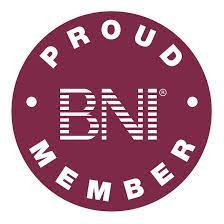The future of work is rapidly changing, and schools need to adapt to prepare their students for the jobs of tomorrow. In India, with its large and growing workforce, this is particularly important. Here are some ways that Indian schools can prepare their students for the future of work:
- Develop Critical Thinking and Problem-Solving Skills: Critical thinking and problem-solving are essential skills for the future of work. Students need to be able to analyze information, think creatively, and solve complex problems. Schools can help students develop these skills by providing opportunities for hands-on learning, group projects, and real-world problem-solving scenarios.
- Foster Creativity and Innovation: As automation and artificial intelligence become more prevalent, creativity and innovation will be increasingly important for many jobs. Schools can foster creativity and innovation by encouraging students to think outside the box, take risks, and try new things. Teachers can provide students with opportunities to work on creative projects, such as designing a new product or creating a marketing campaign.
- Emphasize Digital Literacy: Technology is changing the way we work, and students need to be prepared to use technology effectively. Schools can teach digital literacy skills, such as coding, data analysis, and social media marketing. They can also provide students with access to technology, such as laptops and tablets, and teach them how to use online resources to find information and collaborate with others.
- Teach Collaboration and Communication Skills: The ability to work effectively with others is essential for many jobs. Schools can teach collaboration and communication skills by providing opportunities for group work, debates, and public speaking. Teachers can also encourage students to share their ideas and perspectives, listen actively, and provide constructive feedback.
- Develop Entrepreneurial Skills: With the rise of the gig economy, many workers will need to be entrepreneurial and self-sufficient. Schools can help students develop entrepreneurial skills by teaching them about business, finance, and marketing. They can also provide opportunities for students to start their own businesses or work on real-world entrepreneurial projects.
- Encourage Lifelong Learning: In the rapidly changing world of work, it’s essential to be able to adapt and learn new skills. Schools can encourage lifelong learning by teaching students how to learn, rather than just what to learn. Teachers can provide opportunities for self-directed learning, such as research projects and independent study, and encourage students to pursue their own interests and passions.
- Promote Global Awareness: In an increasingly globalized world, it’s important for students to understand different cultures and perspectives. Schools can promote global awareness by teaching about different countries and cultures, encouraging students to participate in international programs and exchanges, and providing opportunities for language learning.
In conclusion, Indian schools need to adapt to prepare their students for the future of work. By developing critical thinking and problem-solving skills, fostering creativity and innovation, emphasizing digital literacy, teaching collaboration and communication skills, developing entrepreneurial skills, encouraging lifelong learning, and promoting global awareness, schools can help their students succeed in the jobs of tomorrow.










